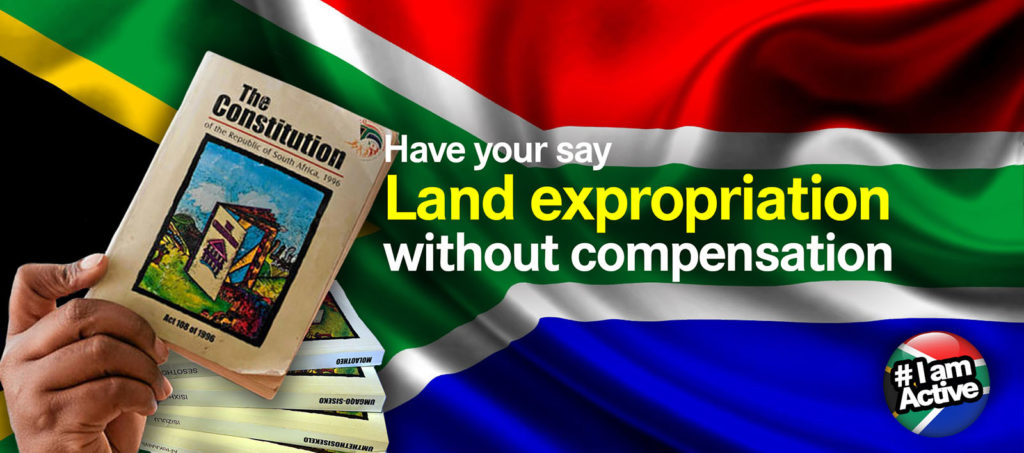
The external experts have been appraising government’s land reform process, with a focus on policy, legislation, frameworks and institutional arrangements.
While almost all recommendations made by the Presidential Advisory Panel on Land Reform and Agriculture (PAPLRA) have been accepted by government, Cabinet found some not feasible to implement, according to Agriculture, Land Reform and Rural Development Minister Thoko Didiza.
The panel comprising land and agriculture professionals, chaired by Dr Vuyokazi Mahlati, presented a set of recommendations to Cabinet in July.
Addressing a media briefing in Tshwane yesterday, Didiza said many departments “noted that some of the issues raised or reflected upon by the advisory panel were matters already being addressed”.
She explained: “In large measure, the recommendations were seen as the affirmation of the work already being done – giving alternatives on how some of these processes can be undertaken.
“Other recommendations made proposals on policy and legislative gaps, such as the policy on land tenure that will address communal land and traditional land tenure in South Africa.
“Others spoke to interventions required to address matters, including coordination among spheres of government.
“There were some recommendations that were not accepted – not because the issues raised were not important, but such recommendations required further engagement of a policy nature.”
On agreed recommendations, Didiza said “relevant departments would develop action plans to ensure implementation is undertaken”.
Among the advisory panel recommendations, not endorsed by Cabinet were the:
- Establishment of the national land rights protector for managing high-level conflict – especially between the state and citizens – an issue found to be already covered in the expanded mandate of the Land Courts Bill.
- Creation of the Land Reform Fund, with government seeing no merit in setting up such a fund, due to current budget allocations addressing the resources required for land reform.
- A land tax inquiry, already undertaken by the ministry of finance, which included land tax, incorporated in the property rates legislation.
- Establishment of a land agrarian reform agency, already addressed by the configuration of the department that combines agriculture and land reform.
- Transference of responsibility for the coordination of rural development from the Department of Rural Development and Land Reform to the Presidency – a recommendation found to be “mute, as the decision was already taken in the in the configuration of government in the sixth administration”.
“As it can be seen from the report, the panel used multiple processes to arrive at their recommendations.
“They reviewed existing documentation such as policies, legislation, as well as understanding consultation with a range of stakeholders, which included government departments; and state entities.
“Attention was given to the funding of land reform, as well as proposals on how this important mandate can leverage on those private individuals who are willing to donate land to the state for land reform purposes.
“Given its time frame, it can be appreciated that some recommendations could not be extensively canvassed. Further work on some recommendations, will therefore have to be undertaken,” said Didiza.
Asked what the country would resemble after the implementation of expropriation of land without compensation, Didiza said: “We would like to see an inclusive society, non-racial and non-sexist in terms of ownership.”
Agri SA reacts
Government was under no obligation to implement any of the proposals of the advisory panel, Agri SA said yesterday (Thurs).
In response a Cabinet decision not to endorse some of the PAPLRA recommendations on land reform it found not feasible, Agri SA head of land affairs Annalize Crosby said her organisation supported the move.
“With respect to a land tax and land ceilings, we are relieved that government has chosen not to blindly implement those recommendations.
“We do however, believe that a land reform fund, based on a public-private partnership, is essential and that current budget allocations for land reform fall far short of what is required. We also support an agricultural development agency of sorts,” said Crosby.
She added: “Cost is a factor that needs to be considered. But there should be a huge focus on effective implementation. We think that should be done through public-private partnerships.”
She quoted a Constitutional Court judgment in the Mwelase case that “touched at the heart of the problem”.
Read the judgement: “South Africans have been waiting for more than 25 years for equitable land reform. The department’s failure to practically manage and expedite land reform measures in accordance with constitutional and statutory promises has profoundly exacerbated the intensity and bitterness of our national debate about land reform.
“It is not the constitution, nor the courts, nor the laws of the country that are at fault in this.
“It is the institutional incapacity of the department to do what the statute and the constitution require of it that lies at the heart of this colossal crisis.”
Article by The Citizen










Expropriation Bill
The Expropriation Bill was another legislative piece that was on Friday approved for comment by Cabinet.
Mthembu said the Bill has been enhanced by inputs from the extensive consultation with the public and from different formations.
“Once passed into law, the Bill will provide uniform procedures to be followed when effecting the expropriation. It provides a legal framework for government departments and other organs of state in the three spheres of government to apply uniform land and other infrastructure expropriation procedures,” he said.
The bill will see the amendment of Section 25 of the South African Constitution.